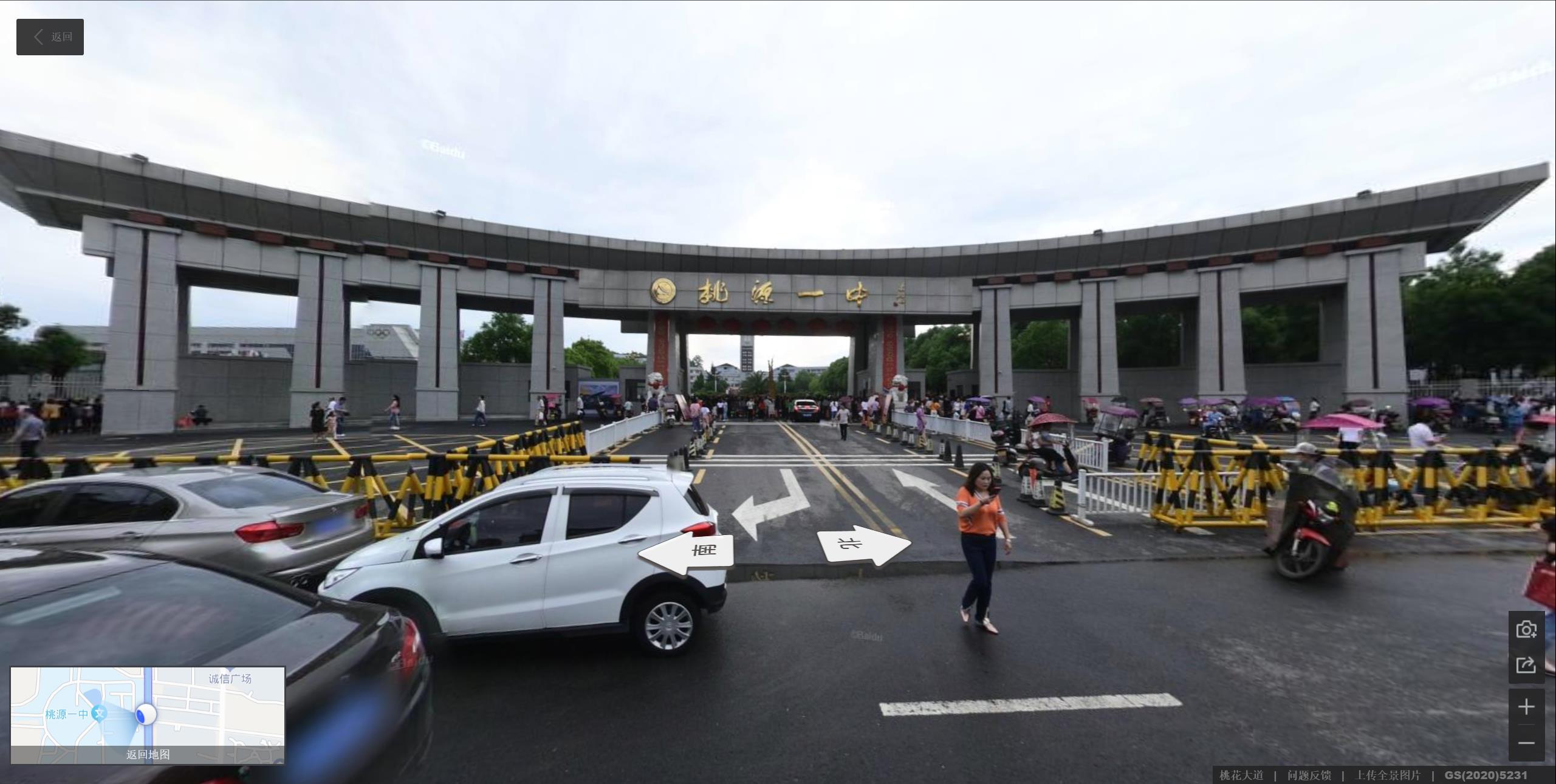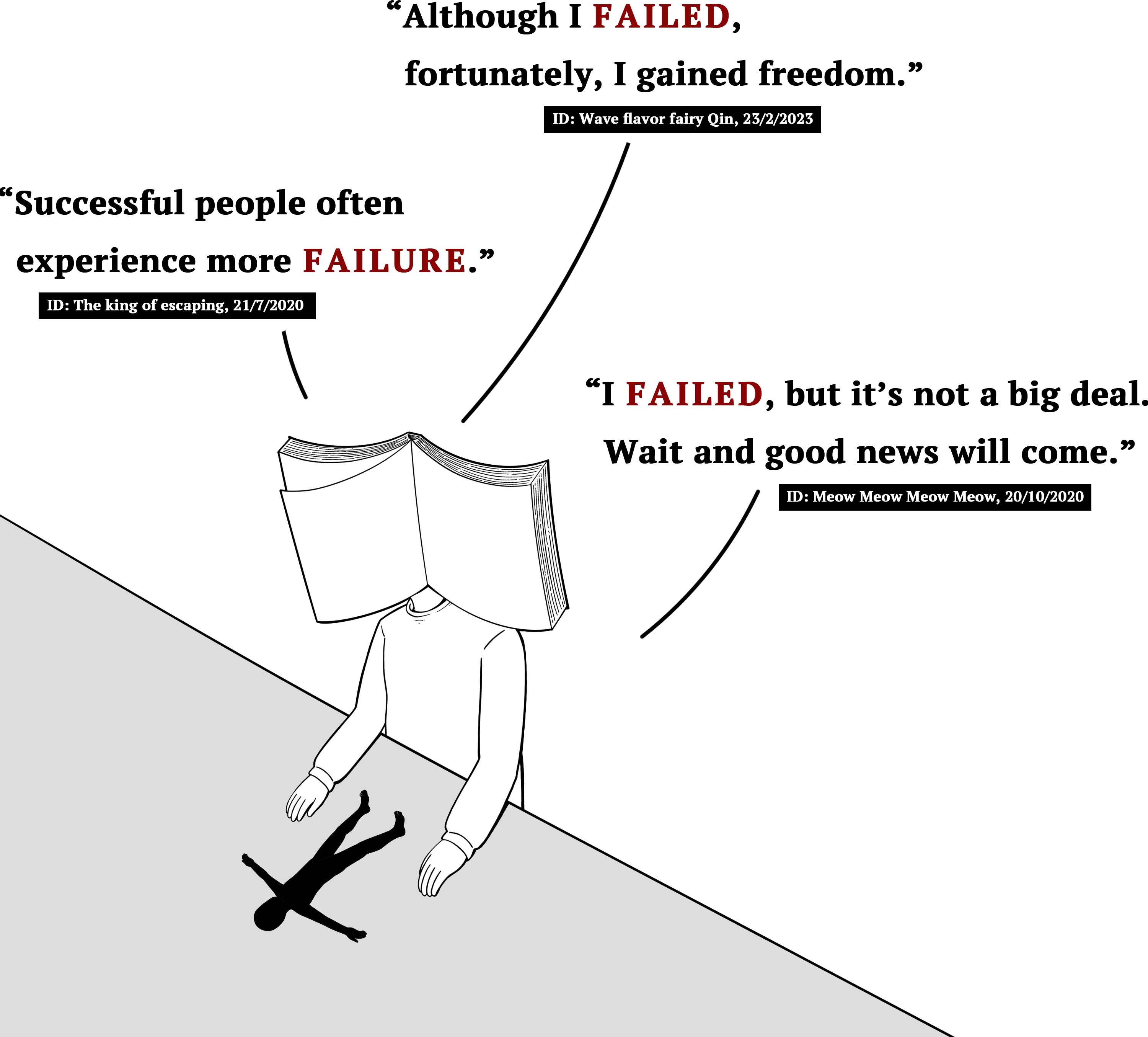“Losers” at China’s Top Universities
How small-town success stories feel out of place at elite universities
By Shiqi Huang & Ziying Le
Romona Rong, 22, a recent graduate from Jilin University, experienced four years of loneliness and low self-esteem in college.
“I was very isolated in the first few years. I felt like a misfit and was lonely.”
Rong was one of the “small-town swots,” a term coined in China to describe those who come from small towns and earned admission to top universities through hard work and good grades. The term was created by a member of Douban’s “Losers from Project 985” group, a forum filled with students from the most elite universities in mainland China who feel like they are underachieving. Douban is a Chinese equivalent of IMDB, but it also has many community groups, like Facebook groups, for like-minded individuals to communicate with each other.

Project 985 consists of the top 39 universities in mainland China, representing the highest level of education in the country. The project was created by the Chinese government to establish world-class universities in the country, for the 21st century. Its name refers to the date of its establishment (May 1998), but others also refer to it because around 98.5% of students couldn’t get accepted.
On the Losers from Project 985 forum, its 120,000 members share feelings and experiences on how becoming members of the “elite” has not met their expectations. This is especially true for those “small-town swots”, who spent most of their youth striving for good grades, while other essential skills were neglected, such as socialising and building self-confidence. The group is filled with confused young minds like Rong.
We analysed over 35,000 posts, 8 million words, in this group, from May 2020 to April 2023, and found that “loser” was the most frequent word used to express members’ emotions.
Attending a top university is supposed to grant students a more successful future. However, these young elites, representing the best of the country, often feel the opposite. They struggle to find a decent job and live the life they desire.
Within the top ten emotions mentioned in all forum posts, only one positive emotion (“Like”) entered the list. Loser is the most frequent emotional word used, almost doubling the second emotion (“no idea”).
A number of topics were associated with these emotional posts, for example “school”, “examinations” and “friends”, but we found that group members seemed to be most disheartened around the topics of “work” and “profession”.
Due to the unequal allocation of educational resources across regions, insufficient guidance from parents and teachers, and the lack of study outside of textbooks, small-town swots often face greater challenges when moving to top universities than those who have grown up in big cities. Amongst other things, they find themselves struggling with a higher cost of living, having opposite values from other students, held back by poor oral English, not knowing how to socialise with different kinds of people, and a constricted worldview.
No Achievements, No Friends
R ong is a regular user of Douban. She accidentally found the group on the site’s home page in 2020 and immediately joined, identifying with the phrase – “Losers from Project 985”.
Rong was born in a small town in Hebei. Her only life goal was to be admitted to a good college, she had no idea what to do beyond that. However, as soon as she had started at Jilin University, she began to feel like she didn’t belong. She experienced cripplingly low self-esteem, loneliness and a crisis of values. On top of that, when she found out in her final year that she was no longer eligible for a post-graduate recommendation, she felt like a complete failure.
“No achievements, no friends,” she said.
“I was naive and idealistic when I chose my school and major. But reality hit me hard once I moved to college,” said Rong, who is the first college student in her family. Since her parents lacked knowledge about choosing a major, they were unable to provide constructive advice. “I’m not sure if I chose the wrong major or the wrong school, but it wasn’t as interesting as I’d imagined.”
Her parents suggested she study majors like teacher training and law, subjects that were widely considered to be easier to find a job in, but she was insistent on choosing sociology. She had given up the opportunity to study in a big city in order to attend the higher-ranked university in Jilin. The course didn’t turn out to be what she had expected, and there are not many opportunities in the province for sociology graduates.
This was even more so after the Double Reduction Policy, enforced from 2021, that aimed to cut down on private education industries in mainland China. Many private education institutions have closed down, whilst the few remaining laid off staff overnight. Fresh graduates like Rong lost the opportunity to enter the private education industry.
The frequency of the word “loser” has significantly decreased after the Double Reduction Policy. More people now attribute their failure to external factors such as the economic downturn and the double reduction policy. They consider themselves victims of an unfortunate era rather than engage in self-deprecation.
The frequency of the word “anxious” remains unchanged, possibly because it was already high – reflecting the mood at the emergence of Covid-19, when our sample began. The frequency of the word “pain” has increased, potentially indicating that this group is experiencing higher pressures in a worse environment for job hunting.
Together with the Double Reduction Policy, the pandemic made Rong’s already unhappy college life even more challenging.
Rong achieved an outstanding academic performance, with a ranking between 15 and 18 in her first year. However, during her sophomore year, a lack of self-discipline and the introduction of remote online classes, due to Covid-19, saw her results worsen. Over this period, she lost eligibility for graduate school recommendation. She would have no way of getting admitted to a post-graduate program other than taking a test and competing for a place with millions of others.
“I was diagnosed with Bipolar Disorder and I feel like my college life was filled with depression,” said Rong. She experienced such a severe culture shock that she struggled to make friends with her roommates and applied for a change of dormitory. To address the loneliness, she downloaded many dating apps. Most of the resulting relationships lasted only a month or two.
“It felt like I didn’t belong there, I didn’t know the rules, and I wasn’t accepted for being myself. I didn’t have a sense of belonging or roots. It’s like there was a wall separating me from the world.” Rong believes that the reason she has struggled to make friends in Jilin is because the city is not big enough. She hopes to move to Beijing, a truly big city, through the graduate school entrance examination, where she can meet like-minded people and achieve success in her career.
A Wrong Major Leads to an Unwanted Job
Lin ZhiShen graduated from Central South University with a degree in medicine, three years ago. He is now unemployed and preparing for the post graduate examination which will take place in December 2023.
Lin was a typical “small-town swot” by definition, born and raised in a small town in Hunan province, where educational resources are scarce in comparison to other parts of mainland China. He was admitted to Central South University, part of the 985 Project, in 2015, when the admission rate for 985 universities was less than 3.12%.

Street view images of Lin’s high school in Hunan province. (Source: Baidu Map)
Being accepted by a prestigious university was supposed to secure Lin a brighter future, but he felt lost after graduation. He now questions whether studying medicine was the right choice.
The crucial decision was made not of his own will, but his parents’. He regrets not having the courage to pursue his own interests, and that he instead chose to meet his parents’ expectations. “I was going to study law,” he said. “The future path for doctors is better than lawyers. That’s what my parents told me. So I conceded.”
It took Lin years to realise he was satisfying his parents’ needs. “Actually, it’s hard to admit that I was pleasing others. For a long time, I preferred to say that I worked hard in high school for my own dreams. However, I believe that interacting with parents is always the top priority before becoming an adult. It’s like being on a planet with only three people, where I can only interact with my parents. I can’t escape from it, but I can also benefit from it.”
“It’s hard to admit that I was making decisions to please others. For a long time, I thought I had worked hard in high school for my own dreams. However, I realised that my constant interactions with my parents had started to influence me. It’s like being on a planet with only three people, where the only voices I hear are my parents’. That can be useful, but it can also create a problem.”

There was no turning back for him, having spent five years in school studying his major. “Perhaps work will give me the answers I need,” he thought upon graduation. But he quickly realised that he didn’t like his new job either. In one forum post, he wrote, “I really dislike my current job but due to various reasons, such as poverty, I won’t be able to quit for the next five years.”
Lin also found himself in a constant state of self-doubt. He felt himself different from peers in that, “others are following an orderly way to live their lives, such as taking the post-graduate exams, trying to get a Ph.D. degree before finally landing a job. Others seem to be living well.” Lin had wanted a journey like that. “Perhaps it would be better had I chosen another school,” he said. “Or perhaps I didn’t make an effort to search for answers when I realised that I wasn’t getting them from my education.”
Lin struggled on a daily basis to deal with the negative emotions. He spent most of his time scrolling social media platforms like Douyin (the Chinese version of TikTok), Weibo (the Chinese version of Twitter), and Bilibili (the Chinese version of YouTube). In one post, he said he spent 8 to 12-hours a-day on his smartphone. He felt guilty for spending so much time on these platforms and even created a forum topic, “An Hour of Smartphones Every Day” to encourage himself and others to control their smartphone usage. The topic received some responses but soon faded away.
Struggles and Mutual Assistance
Although these posts are filled with helplessness, struggles, and sighs from these ‘elites’, it is easy to sense the warmth amongst the group. They encourage each other and keep trying to improve their lives.

When the topic “losers” was discussed heatedly, some people focused on finding ways to overcome their situation and improve their circumstances. Others, meanwhile, encouraged acceptance, emphasising the importance of coming to terms with setbacks and learning from them. Similarly, when discussing anxiety and failure, some individuals drew from their own experiences to help alleviate the anxieties of others. They may also choose to compliment and uplift those who are struggling. Despite feeling that their own lives may be in disarray, they make a genuine effort to bring warmth and support to those around them.
When asked what they expected an ideal college life would be like at a top university, Lin said,”I wish it could teach me what kind of person I’m going to be.”
Extra Credits
Advisor Cezary Podkul
Editorial Director Hailey Yip
Multimedia Director Madeleine Mak
Multimedia Producer Wulfric Zhang
Illustrator Jamie Clarke & Wulfric Zhang
Copy Editor Jamie Clarke
Fact Checker Larissa Gao
